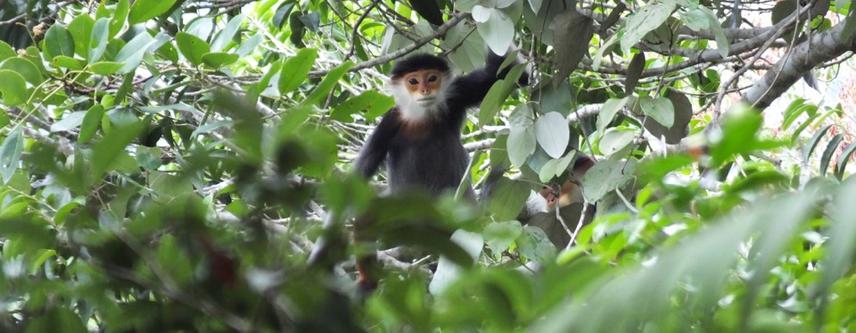Camille Coudrat
Other projects
15 Oct 2013
Pilot School Education Project for Knowledge and Attitude Change towards Wildlife and Habitat in Nakai-Nam Theun National Protected Area, Laos
22 Nov 2016
Scaling up our Biodiversity Literacy Project in Nakai-Nam Theun National Protected Area, Laos through Teachers Training and Education Resources (Phase 3)
Inform and engage the local community in ecosystem protection in Nakai-Nam Theun National Protected Area, Laos with the development of a conservation education program, with children as our target audience, implemented at two target villages

NNT NPA is one of the largest remaining contiguous and little encroached forest blocks in the Indochinese peninsula and holds rare, endemic and highly threatened species. Project Anoulak was initiated in the area in 2012 for biodiversity research and conservation in collaboration with local authorities. Illegal poaching in the area has dramatically increased in the past decades and led to the considerable reduction in wildlife populations. Thirty-one villages occur within the NPA, with a high population growth of 3.8% relying on forest products for their subsistence livelihood. Teaching levels are low and education materials are almost in-existent. Villagers are generally not aware of the National or Global status of local species and did not receive any basic environmental and natural education.
Informing villagers about the local species’ status, ecology and importance for human’s well-being are crucial for the long-term protection of the ecosystem. Our Biodiversity Literacy Project will build pride and empower communities to be actors in the protection of the ecosystem. The Project is targeting school children, the next generation. In 2014 with the support of the Rufford Foundation we initiated a pilot conservation education project. We are building on this pilot project to develop and implement a long-term Biodiversity Literacy project.
Our Biodiversity Literacy Project aims to positively contribute to the ecosystem protection through:
• Increasing knowledge about nature, forests, wildlife and the environment and their importance for human well-being
• Empowering and building pride for the protection of the ecosystem
• Increasing knowledge about national laws on hunting regulations
• Engaging and inspiring the next generation for wildlife conservation
• Training the village’s teachers to integrate conservation education activities in their curriculum
With the above, we expect the rise in awareness and in the medium-long term, a decrease in illegal poaching in the area by adults reached out by the project and by the future generation targeted during this project. The contribution of our work therefore endeavors to have long term measurable effects on local wildlife populations.